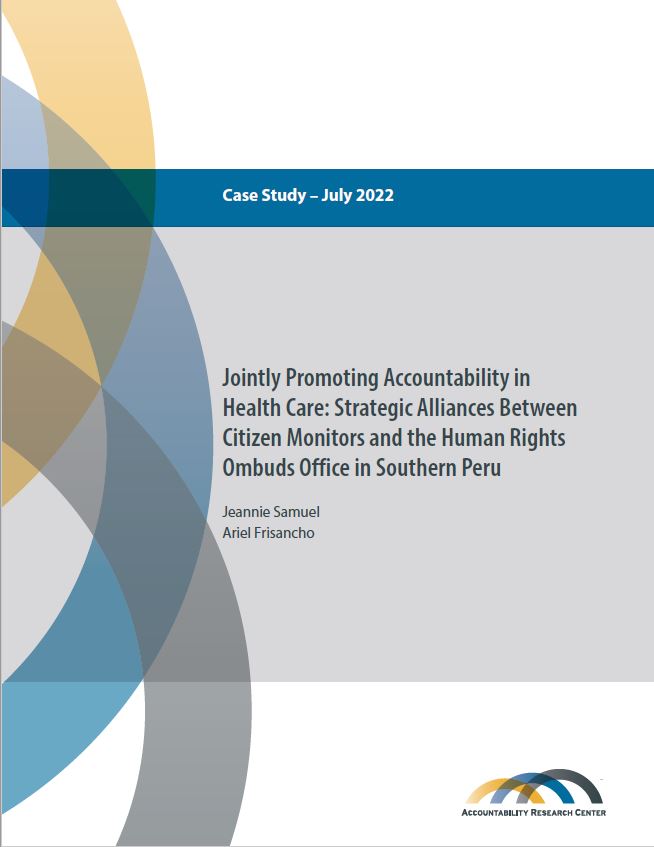[osd_social_media_sharing]

Jointly Promoting Accountability in Health Care: Strategic Alliances Between Citizen Monitors and the Human Rights Ombuds Office in Southern Peru
Date: July 2022
Author(s): Jeannie Samuel and Ariel Frisancho
Publication type:
Published by: Accountability Research Center
“Sandwich strategies” are interactive processes in which reformers in government take tangible measures that reduce the risks of citizen action from below, driving virtuous circles of mutual empowerment between pro-accountability actors in state and society. This case study is one of a set of 18 published here, which are among those included in comparative analyses of whether and how sandwich strategy initiatives drive institutional change.
This case study discusses an initiative designed to promote accountability in the health system in the southern Andean region of Puno, Peru. The initiative, funded by UK Aid, operated between 2008 and 2014. It was the product of an alliance linking the regional branch of the Defensoría del Pueblo, Peru’s Human Rights Ombuds Office, with a coalition of civil society actors, including a group of Indigenous women volunteers, in order to monitor the quality of health service delivery in remote Andean communities.
Though the Ombuds agency’s lawyers lacked capacity and authority over the health system, they responded to reports of problems and provided 150 volunteer monitors with visible official credentials. The regional office of the public health insurance system later joined. Bilingual radio programs informed users of their rights. Over time, better communication with local medical staff reduced some of their resistance to feedback. Monitoring findings were discussed with health officials in local public hearings and multi-stakeholder regional health councils, though with weak follow-up. Problem-solving addressed inadequate service, ethnic/gender discrimination, and illegitimate fees and administrative requirements.
This pilot informed national advocacy, leading in 2011 to new health ministry regulations that recognized citizen monitoring committees, but a change in government blocked follow-up. By 2014, polarized debate over new national health policies crowded out support for this collaborative social accountability initiative, but grassroots monitors continued their work.
Versión en español aquí.
